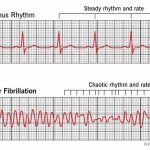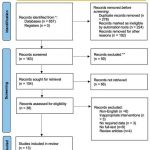Contents
Antizol (fomepizole)
Antizol (fomepizole) is an antidote used to treat poisoning with ethylene glycol (antifreeze) or methanol (contained in solvents, fuels, and other household or automotive chemicals). Antizol is sometimes used together with hemodialysis to rid the body of a poison. Antizol is available in generic form.
Side Effects of Antizol
Common side effects of Antizol include:
- mild skin rash,
- heartburn,
- nausea,
- vomiting,
- diarrhea,
- loss of appetite,
- dizziness,
- drowsiness, anxiety,
- headache,
- metallic taste in mouth,
- hangover feeling,
- back pain,
- sore throat,
- ringing in ears,
- changes in vision,
- changes in smell or taste senses
Caution: Must be diluted prior to use.
Dosage for Antizol
Do not use polycarbonate syringes or polycarbonate-containing needles (including polycarbonate filter needles) when diluting or administering Antizol. Fomepizole can interact with polycarbonate, compromising the integrity of the syringe and/or needle component containing polycarbonate.
Treatment Guidelines
- If ethylene glycol or methanol poisoning is left untreated, the natural progression leads to accumulation of toxic metabolites, including glycolic and oxalic acids (ethylene glycol intoxication) and formic acid (methanol intoxication).
- These metabolites can induce metabolic acidosis, seizures, stupor, coma, calcium oxaluria, acute tubular necrosis, blindness, and death.
- The diagnosis of these poisonings may be difficult because ethylene glycol and methanol concentrations diminish in the blood as they are metabolized.
- Hence, both ethylene glycol and methanol concentrations and acid base balance should be monitored and used to guide treatment.
- Treatment consists of blocking the formation of toxic metabolites using inhibitors of alcohol dehydrogenase, such as Antizol, and correction of metabolic abnormalities.
- In patients with high ethylene glycol or methanol concentrations (≥ 50 mg/dL), significant metabolic acidosis, or renal failure, hemodialysis should be considered to remove the toxic substances.
Treatment With Antizol
- Begin Antizol treatment immediately upon suspicion of ethylene glycol or methanol ingestion based on patient history and/or anion gap metabolic acidosis, visual disturbances, or oxalate crystals in the urine, OR a documented serum ethylene glycol or methanol concentration greater than 20 mg/dL.
Hemodialysis
- Hemodialysis should be considered in addition to Antizol in the case of renal failure, significant or worsening metabolic acidosis, or a measured ethylene glycol or methanol concentration of greater than or equal to 50 mg/dL.
- Patients should be dialyzed to correct metabolic abnormalities and to lower the ethylene glycol concentrations below 50 mg/dL.
Discontinuation Of Antizol Treatment
- Treatment with Antizol may be discontinued when ethylene glycol or methanol concentrations are undetectable or have been reduced below 20 mg/dL, and the patient is asymptomatic with normal pH.
Dosing Of Antizol
- A loading dose of 15 mg/kg should be administered, followed by doses of 10 mg/kg every 12 hours for 4 doses, then 15 mg/kg every 12 hours thereafter until ethylene glycol or methanol concentrations are undetectable or have been reduced below 20 mg/dL, and the patient is asymptomatic with normal pH. All doses should be administered as a slow intravenous infusion over 30 minutes.
Dosage With Renal Dialysis
Antizol (fomepizole) Injection is dialyzable and the frequency of dosing should be increased to every 4 hours during hemodialysis
Antizol Dosing in Patients Requiring Hemodialysis
| DOSE AT THE BEGINNING OF HEMODIALYSIS | |
| If | If ≥6 hours since last Antizol dose |
| Do not administer dose | Administer next scheduled dose |
| DOSING DURING HEMODIALYSIS | |
| Dose every 4 hours | |
| DOSING AT THE TIME HEMODIALYSIS IS COMPLETED | |
| Time between last dose and the end of hemodialysis | |
| Do not administer dose at the end of hemodialysis | |
| 1-3 hours | Administer ½ of next scheduled dose |
| >3 hours | Administer next scheduled dose |
| MAINTENANCE DOSING OFF HEMODIALYSIS | |
| Give next scheduled dose 12 hours from last dose administered | |
Administration
- Antizol solidifies at temperatures less than 25° C (77° F). If the Antizol solution has become solid in the vial, the solution should be liquefied by running the vial under warm water or by holding in the hand.
- Solidification does not affect the efficacy, safety, or stability of Antizol. Using sterile technique, the appropriate dose of Antizol should be drawn from the vial with a non-polycarbonate containing syringe and injected into at least 100 mL of sterile 0.9% sodium chloride injection or dextrose 5% injection. Mix well.
- The entire contents of the resulting solution should be infused over 30 minutes. Antizol, like all parenteral products, should be inspected visually for particulate matter prior to administration.
Stability
- Antizol diluted in 0.9% sodium chloride injection or dextrose 5% injection remains stable and sterile for at least 24 hours when stored refrigerated or at room temperature.
- Antizol does not contain preservatives. Therefore, maintain sterile conditions, and after dilution do not use beyond 24 hours. Solutions showing haziness, particulate matter, precipitate, discoloration, or leakage should not be used.
Drug Interactions
- Oral doses of Antizol (fomepizole) (10-20 mg/kg), via alcohol dehydrogenase inhibition, significantly reduced the rate of elimination of ethanol (by approximately 40%) given to healthy volunteers in moderate doses.
- Similarly, ethanol decreased the rate of elimination of Antizol (fomepizole) (by approximately 50%) by the same mechanism.
- Reciprocal interactions may occur with concomitant use of Antizol (fomepizole) and drugs that increase or inhibit the cytochrome P450 system (e.g., phenytoin, carbamazepine, cimetidine, ketoconazole), though this has not been studied.
Safety During Pregnancy and Breastfeeding
- It is also not known whether Antizol can cause fetal harm when administered to pregnant women or can affect reproduction capacity.
- Antizol should be given to pregnant women only if clearly needed. It is not known whether fomepizole is excreted in human milk.
- Because many drugs are excreted in human milk, caution should be exercised when Antizol is administered to a nursing woman.
Summary
Antizol (fomepizole) is an antidote used to treat poisoning with ethylene glycol (antifreeze) or methanol (contained in solvents, fuels, and other household or automotive chemicals). Antizol is sometimes used together with hemodialysis to rid the body of a poison. Antizol is available in generic form. Common side effects of Antizol include mild skin rash, heartburn, nausea, vomiting, diarrhea, loss of appetite, dizziness, drowsiness, anxiety, headache, metallic taste in mouth, hangover feeling, back pain, sore throat, ringing in ears, or changes in vision, changes in smell or taste senses.


